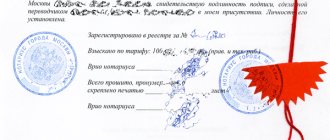An agreement for the provision of real estate services is an agreement under which one party, on behalf of the other party, carries out activities to find or sell real estate.
- Form and sample
- Free download
- Online viewing
- Expert tested
FILES
This agreement is a type of transaction for the provision of services for a fee; therefore, when drawing it up, you should be guided by the rules established by Civil Legislation.
Subjects under the agreement can be individuals and legal entities. The parties to the agreement are called the Customer and the Contractor.
Services under the contract mean the Customer’s instructions related to the search for real estate for rent, purchase or sale.
The above mentioned transaction is concluded in simple written form. In this regard, below we will analyze in detail how such a document is drawn up, and what nuances you should pay attention to when preparing it.
Agreement for the provision of real estate services
Kurgan
September 1, 2023
Realtor, represented by General Director Artemov Artem Evgenievich, acting on the basis of a Power of Attorney, hereinafter referred to as the Executor, on the one hand, and Stepanov Nikolay Aleksandrovich, born on November 8, 1991, living at the address: Leningrad region, St. Petersburg, st. Pervomaiskaya, 996, building 7, apartment 481, passport: number 0000 series 000000, issued by the department of the Federal Migration Service of Russia for the Leningrad region in the city of St. Petersburg on November 8, 2011, hereinafter referred to as the Customer, on the other hand, have entered into this agreement as follows:
The preamble states:
- type of transaction;
- date, month and place of conclusion of the agreement;
- names and roles of Counterparties;
- series and number of the citizen’s passport.
When concluding any agreement, it is necessary to specify provisions related to the essential terms of the agreement, otherwise the agreement will not come into force. In our situation, these conditions are:
- item;
- cost and payment procedure for services provided;
- obligations of counterparties.
Tips for completing a deal: how to stay a winner?
If the price and quality of the property makes the deal look profitable, you can proceed with the purchase and sale of the apartment.
You need to be wary if:
- the seller acts under a general power of attorney;
- does not provide any information on the fact of inheritance;
- representative – the only person completing the transaction;
- the price of the apartment has been reduced by more than 20% compared to similar properties.
If these factors are absent, the documentation is checked:
- The seller's passport is verified against the identity.
- The documents for the apartment are being reviewed.
- The certificate of inheritance is checked and the seller’s co-heirs are identified. Based on the number of co-heirs, the following are verified:
- submitted consents for the sale of the apartment;
- notarized powers of attorney;
- refusals of inheritance.
The documentation attached to the title document (certificate) must correspond to the number of participants in the inheritance procedure. None of the participants included in the receipt of the inheritance can withdraw from the transaction unreasonably; an oral refusal of the inheritance has no legal force .
To check documents, it is best to enlist the support of a lawyer for the transaction as a whole, or carry it out through the mediation of a reputable real estate company. A notary will give additional legal capacity to the purchase and sale agreement. But the most significant guarantees, up to the return of the amount of money spent on an apartment in the event of an insured event, are provided by title insurance of real estate.
IMPORTANT: The specialist or company accompanying the transaction will represent the buyer in court if the contract is disputed.
Item
Provisions on the subject of the transaction appear in the initial section of any document. When drawing up an agreement for the provision of real estate services, the subject is the real estate services themselves. In the text of the document, the section on the subject of the agreement is written as follows:
In accordance with this agreement, the Contractor undertakes, on behalf of the Customer, for the fee agreed upon in the contract, to provide services for the selection and acquisition of real estate owned by Nikolai Alexandrovich Stepanov. The Contractor carries out actions for the selection and acquisition of residential real estate in accordance with legal requirements. The Customer's preferences and other requirements are specified in Appendix 1 to this agreement.
Advantages and disadvantages of purchasing such real estate
The benefits include the following:
- A significant discount, since sales of such real estate are usually urgent. Approximately 20% lower than average prices.
- A prepared package of documentation, as it was required when drawing up a will, or registering the right of inheritance.
- Preliminary check of the apartment for the purity of the title, which was carried out by a notary.
The many disadvantages that have been mentioned include:
- high risk of challenging the transaction;
- thorough verification of the seller's legal capacity.
REFERENCE: Since the real estate market always carries risks for the buyer, the option of purchasing an inherited property is not much different from other options.
Price and payment procedure for services provided
This section contains information about the cost of intermediary services provided. You should also indicate in what form and when the payment will be made. Payment can be made in cash or by bank transfer as agreed by the parties. So, the specified section looks like this:
The contract price is divided into a security deposit and the final payment amount after fulfillment of obligations under the contract. The amount of the security payment is 35,000 (Thirty-five) thousand rubles and is paid to the Contractor at the time of signing the document. The final payment amount is 63,500 (sixty-three thousand five hundred) rubles and is paid after the provision of real estate services. All payments are made in cashless form by transferring funds to the bank account of the real estate company.
Useful video
Watch a video about the risks that arise when purchasing an apartment inherited by the seller:
Our specialists have prepared for you other useful materials on the topic of purchasing an apartment. Read about how much a real estate purchase and sale agreement costs and what expenses the buyer and seller bear when completing the transaction.
Rights and obligations of the parties
The section on rights and obligations is written in order to specify the actions of the Counterparties. Thus, the presence of such provisions in the document gives a clear understanding of how the parties must fulfill their obligations. So, the wording of the provisions of the rights and obligations of the Contractors in the text of the document is written as follows:
The Customer has the right to: Demand that the Counterparty's obligations be fulfilled in strict accordance with the contract. Request information about the performance of the work. The customer undertakes to: Pay for real estate services in accordance with the section on the price of the contract. Do not enter into similar agreements with other persons engaged in such activities. When purchasing real estate, provide written consent. Fulfill your obligations in accordance with this agreement. The Contractor has the right to: Demand payment for the services provided by him in accordance with the section on the price of the contract. Demand proper fulfillment of obligations by the Customer under the concluded contract. The Contractor undertakes to: Provide real estate services for the selection and purchase of real estate. Compile and send reports to the Customer on the results of their work every Monday during the term of the agreement. Act on behalf of the Customer when carrying out their activities. Fulfill your obligations efficiently in strict accordance with the provisions specified in the document.
Risks and problems for the buyer
If the procedure for inheriting an object occurred with violations, and errors were made in the registration of property rights, or the rights of third parties, the sale is problematic. It should be taken into account that with the alienation of the property to the buyer, all unresolved issues and newly arisen problems related to the title of the purchased property are transferred to him.
These include:
- Bad faith of participants in the inheritance procedure who did not notify all persons who have the possibility of succession. In this case, upon learning of the death of the testator, third parties have the right to assert their legal rights.
- After entering into an inheritance and completing the transaction, the seller will be recognized as an unworthy heir (Article 1117 of the Civil Code of the Russian Federation), which will lead to the recognition of the transaction he has completed as void.
- The will under which the property was transferred will be contested, which will also lead to the nullity of the sale and purchase.
- According to a will, a testamentary refusal can be transferred along with real estate - the right of one of the relatives to live in the living space for life (Article 1137 of the Civil Code of the Russian Federation).
- After the division of property according to the law, a will will be discovered, requiring a review of the legal positions of the heirs.
- The deceased owner violated the rights of minor children during privatization. After coming of age, they can claim their share.
ATTENTION: A property transaction does not cancel the rights of third parties to an apartment if their property interests were damaged as a result of the transaction, or were knowingly violated by previous rights holders.
Fraudulent schemes
In addition to the dishonesty of the heirs or testators themselves, such apartments are often involved in fraudulent schemes. Fraud can be expressed in openly illegal actions of heirs who took possession of real estate, bypassing the rights of other persons authorized to acquire inherited property:
- through an illegally executed will;
- through false documents;
- bypassing the queue according to the law.
Typically, illegally obtained property is sold as quickly as possible, while other potential legal claimants remain in the dark about their inheritance rights. Naturally, such fraud will be exposed, but the buyer will become a victim of deception and a participant in legal disputes, with the risk of losing the purchased home.
Professional fraudsters operating in the real estate market often draw up fake wills from single owners, according to which they enter into an inheritance. Sometimes such documents are extorted from elderly owners shortly before their death. Subsequently, relatives of the second or third line of kinship can prove that the testator was incompetent at the time of execution of the will, restoring their own rights to the property.
If it is proven that the will is fake, the transaction is canceled: in this case, the buyer finds himself in a difficult position, since accepting restitution accompanying the cancellation of the transaction can lead to unpleasant consequences.
- The object that he acquired illegally is alienated to its rightful owners.
- The money he paid to the scammers will be lost forever, since it will most likely be impossible to find it.
IMPORTANT: Proceedings of the case in court require the provision of complete information about the defendant, and are not initiated against an unknown attacker.
Similar legal consequences can arise with such types of fraud as a fake deed of gift drawn up during the owner’s lifetime or an invalid sales contract.
How to protect yourself?
To minimize risks, or even better to avoid them, a thorough check of the transaction for purity will be required. Legal purity is a guarantee that the purchased housing, after the transfer of ownership, will not be encroached upon by third parties whose rights have been violated. Accordingly, it is necessary to identify the presence of third parties who may suffer during the transaction or to verify the absence of them.
In this context, when purchasing an inherited apartment, you need to check the package of documentation for the property and find out a number of essential conditions. The important points are:
- Get an archival extract from the apartment register and find out who lived with the deceased.
- Find out whether there are any registered relatives left, whether one of them has received the right of testamentary refusal (we talked in detail about the consequences of buying an apartment with registered tenants here).
- The seller, if he is not one of the spouses, children or parents who have a priority right to inheritance, should find out about the presence of close relatives.
- In the will, check the allocation of a mandatory share to close relatives.
With a package of documentation, it is advisable to contact a lawyer with the necessary competencies so that he can check the legality of the transaction and help draw up the contract. In the case of a will, it is best to contact a notary to conclude the transaction, who knows the intricacies of preparing testamentary procedures and will determine the authenticity of the testamentary document.
The safety of the purchase is guaranteed if the seller is a first-degree relative and has a certificate from the registry office about full brothers (sisters). Regarding the parents of the deceased, their death certificates must be available, or they must be included in the number of heirs or provide a waiver of participation in the procedure. The same applies to the testator's spouse.
However, one should not discount the fact that applicants may appear from among children from other marriages. If, under the above circumstances, the absence of other applicants is guaranteed, the risks can be considered insignificant.
ATTENTION: For a full guarantee, it is best to buy an apartment that has been inherited and has been owned for at least 3 years.
Read about the nuances and pitfalls of buying and selling an apartment that has been owned for less than 3 years here.
You should always take into account the risks associated with the testamentary procedure:
- for a certain reason, the will may not be in the notary’s office where the inheritance was opened, and it may emerge after the property is divided and sold;
- when implementing a testamentary disposition, it is not taken into account that the testator drew up a later will.
Therefore, before the transaction begins, it makes sense to contact the notary office “Inheritance Without Borders” with a request.
What clauses of the purchase and sale agreement should I pay attention to?
Despite the fact that all provisions of the contract are subject to mandatory execution, and therefore must be checked with special care, inherited property requires additional security measures. Particularly important terms of the contract:
- The subject of the agreement must include language stating that the apartment was received by will (by law) and is not encumbered by litigation.
- The rights and obligations of the parties must indicate that the transaction did not violate the rights of third parties and other claimants to the inheritance. Here you should also check the inclusion of a subclause on the possibility of a testamentary refusal or other encumbrance.
- The provision on the responsibility of the parties must necessarily contain the wording that upon termination of the contract, everything received under the transaction is returned to the parties in full.
In order to ensure that in the event of a dispute with the contract, the buyer does not lose the right to receive money, it is imperative to make sure that the amount paid is included in the contract, taking into account the advance payment or deposit, if one was paid.
REFERENCE: On the sale of real estate owned for less than three years, personal income tax is charged in the amount of 13% of the value of the property specified in the contract.
Often an apartment is sold immediately after inheritance, which requires the seller to pay tax. Apartments worth up to 1 million are not taxed. The seller can convince the buyer to contribute a tax-free amount to the contract. Therein lies another risk.
If the restitution transaction is contested, the seller will legally receive the sold apartment, and the buyer will receive 1 million rubles, even if the amount is indicated on the receipt.
Responsibility of the parties
This section identifies provisions on circumstances in the event of which the parties bear financial liability. Below we present typical wording of provisions that can be written in the text of the document:
The parties are mutually responsible for non-fulfillment or improper fulfillment of obligations under this agreement. If the customer is late in paying for services or has not paid in full, he undertakes to pay a penalty in the amount of 1.3% of the transaction price.
What should you pay attention to?
The main thing that needs to be paid attention to in this case is the legality of the distribution of the inheritance mass, and its conscientious transfer to the seller. The seller must have the following rights:
- Take sole ownership of the apartment, as indicated in the inheritance certificate.
- If there are several heirs, they are obliged to put up the object jointly, being sellers according to the number of persons indicated in the certificate.
- The object may be received by several successors, but transferred for sale to one of the heirs, under notarized powers of attorney allowing the sale.
- The apartment can be transferred into the possession of the seller on the basis of refusal of other heirs, by transferring an official document to the notary.
- Obtain a court decision if a dispute has arisen regarding the distribution of inherited property.
IMPORTANT: The purity of the transaction provides that all the listed conditions are fulfilled in full, and the rights of third parties are not violated.
Transferring money to the seller “in hand” before registering the transaction is unsafe
Some of my colleagues insist that without any safe deposit boxes, buyers spent their entire lives handing over money to sellers and everything went fine. I think so - if you can further protect yourself, then you shouldn’t waste money on it. Moreover, the sellers themselves willingly agree to the option with a safe deposit box, because the bank protects the interests of both parties.
If sellers insist on receiving the money “in hand,” for example, after submitting documents to the MFC or the Federal Registration Service, and not after registering the transaction, then I would think a hundred times about buying such an apartment. As a last resort, it is better to send money by bank transfer and be sure to obtain a receipt from the seller confirming receipt of money (sample).
Other articles
How to check an apartment for encumbrances/restrictions - online method
Safe ways to transfer money
In all 3 methods, payments for an apartment go through a guarantor-intermediary. With a safe deposit box and letter of credit, the bank acts as the guarantor; with a deposit account, the notary acts as the guarantor (if the purchase and sale transaction will go through him).
The main essence of settlements through a guarantor is that each party proves to each other that they are ready to enter into a deal. Before submitting the purchase and sale agreement for registration, the parties to the transaction contact a guarantor-intermediary, to whom the buyer transfers money for the apartment. Now the money is “frozen” for a certain period - the buyer will not be able to pick it up. By this he proves to the seller that he has fulfilled his obligation to pay. The guarantor will transfer the money to the seller only after registering the transaction, namely when he shows the registered purchase and sale agreement and/or an extract from the Unified State Register of Real Estate, where the buyer will be the new owner of the apartment. If for some reason the transaction was not registered and one of the parties refuses the transaction, the buyers take the money back after the end of the period.
Sample documents
(click on the pictures to enlarge them)
Sales and purchase agreement page with registration stamp
Extract from the Unified State Register of Real Estate
Guarantor services are paid. The law does not specify who should pay for it, so it’s up to buyers and sellers to agree. In my practice, it’s usually 50/50, because the guarantor protects the interests of both parties.
Method No. 1 - Through a safe deposit box (cash payment)
A bank safe deposit box is a small safe in a special bank storage facility (depository), which it rents out for storing any things - money, documents, valuables, etc.
The safe deposit box method is the most common - it is cheaper and less complicated. It is most convenient to pay through a cell if you are simultaneously selling your property and buying a new one. This is called alternative transactions, in common parlance - “along the chain”.
Most banks specialized in this service for real estate transactions. A bank employee will explain and document everything in detail. The parties only have to sign the necessary papers. In general, everything is adjusted and put on stream. Machines for counting and checking bills are also usually provided free of charge.
The cell rental service costs an average of 3,000 rubles. It is worth renting for at least 2 weeks, preferably for a month. You can extend your lease agreement at any time. Naturally, the size of the cell should be such that your cash fits in it.
Offers from banks
- Rent of safes in Sberbank
- Rent of VTB safe deposit boxes
- Rent for real estate transactions in Alfa-Bank
- Individual safe deposit boxes at Rosselkhozbank
- Safe deposit boxes at Otkritie Bank
Other articles
Deposit when buying an apartment - how to transfer it correctly so that there are no problems with sellers Documents for purchasing an apartment on the secondary market - a complete and current list
Brief instructions
The buyer and seller go to the bank and rent a safe deposit box in the buyer's name. The buyer, in the presence of the seller, deposits money into the rented locker. The bank employee will draw up an additional agreement that the seller will be given access to the locker only after he shows the apartment purchase and sale agreement with a registration stamp and/or an extract from the Unified State Register of Real Estate. As soon as the seller brings these documents, he will be given access to the box and will be able to withdraw the money. Next, I advise buyers to obtain a receipt from sellers confirming receipt of money.
detailed instructions
- Before signing the purchase and sale agreement, the buyer and the seller contact the bank, provide the employee with their passports and a sample purchase and sale agreement. Typically, the lease agreement and the act of acceptance and transfer of use of the cell are drawn up in the name of the buyer, but both parties can be tenants if desired.
Along with the lease agreement, the bank employee will draw up an additional agreement, which specifies the condition - the seller will have access to the locker only when he provides a sales contract with a registration stamp and/or an extract from the Unified State Register of Real Estate.Rent of a cell and additional agreement are paid separately. Some banks require you to leave a certain amount as collateral for the key to the safe deposit box.
- After paying for the service and signing the papers, the buyer and seller go to a special storage unit (depository). Buyers, in the presence of sellers, deposit money into a rented locker. I advise you to give the seller the opportunity to count the money so that there are no questions in the future. Typically, the bank provides machines for counting and checking the authenticity of banknotes free of charge. Next, the buyer closes the locker and keeps the key for himself. Now you can enter into a purchase and sale transaction.
- After registering the transaction, each participant will receive their originals of the registered purchase and sale agreement, and the buyer will also receive an extract from the Unified State Register of Real Estate. Registration certificates have not been issued since 2016.
- The participants in the transaction again go to the bank, where the buyer provides the employee with a lease agreement, and the seller provides a registered purchase and sale agreement and/or an extract from the Unified State Register for the apartment. As a result, the seller is given access to the cell and takes the money.
After the seller has received the money, I advise buyers to obtain a receipt from the seller. Only a receipt confirms the transfer of money, plus it will be required by the tax office when receiving a tax deduction for the purchase of an apartment. The receipt must be handwritten, in legible handwriting, dated and signed.Sample receipt
Method No. 2 - Through a letter of credit (non-cash payment)
The method is similar to renting a safe deposit box, only here the money is sent non-cash to the seller’s account from a special letter of credit account. An account in the name of the seller can be opened in any bank.
Disadvantages of this method: 1) Higher cost of the service itself + additional transfer fees. On average it comes out to 7,000 rubles. 2) Doesn’t fit well with “chain” transactions; 3) Not all banks provide such a service; 4) Many bank employees do not have sufficient experience in working with letter of credit accounts, so they usually take longer to process everything and may make mistakes.
Banks that provide letter of credit services for real estate transactions
- Sberbank
- VTB
- UniCredit Bank
Other articles
If, after the purchase, the former owner files for bankruptcy, interested parties may challenge the transaction. Here we explain how buyers can protect themselves from this
Brief instructions
The buyer opens a savings account with a bank that provides the letter of credit service. Money is deposited into this account to purchase an apartment and an application is submitted to open a letter of credit. As a result, the money will be transferred to a special letter of credit account.
After registering the transaction, the seller provides the bank with a registered purchase and sale agreement and/or an extract from the Unified State Register of Real Estate. These documents prove that the registration was successful and the buyer became the owner of the apartment. The bank employee transfers money from the letter of credit account to the seller's account. An account in the name of the seller can be opened in any bank.
detailed instructions
- The buyer deposits the money for the apartment into his savings account.
- Participants in the transaction contact the bank and provide their passports, a sample apartment purchase and sale agreement and the seller’s details. The buyer signs an application for opening a letter of credit. The application must indicate the details of the seller and the condition - money from the letter of credit account will be transferred to the seller after he provides a registered purchase and sale agreement and/or an extract from the Unified State Register of Real Estate.
The term of the letter of credit should be set at least 2 weeks. Better for a month. You can extend it at any time.Sample application for opening a letter of credit
- Money from the buyer’s account will be transferred to a special letter of credit account and a statement of the transfer of funds will be issued. This statement proves that the buyer has fulfilled his payment obligation to the seller. The seller will be notified that a letter of credit has been opened in his favor. You can enter into a purchase and sale transaction.
- After registering the transaction, each participant will receive their originals of the registered purchase and sale agreement, and the buyer will also receive an extract from the Unified State Register of Real Estate. Registration certificates have not been issued since 2016.
- The participants in the transaction again contact the bank, where the seller provides the original of the registered sale and purchase agreement and/or an extract from the Unified State Register for the apartment. As a result, the money from the letter of credit account will be sent to the seller’s account, and the buyer will receive a confirmation document about the transfer.
Even though the buyer will receive a certificate confirming the transfer of money to the seller’s account, I still advise you to get a receipt from him - a sample. It won't be redundant.
Method No. 3 - Through a notary's deposit account (cash and non-cash payments)
The method is similar to a letter of credit, but a notary acts as a guarantor-intermediary in settlements and all transactions will go through his deposit account.
It is better to use this service only if a notary certifies the purchase and sale agreement. In this case, the service will cost 1,500 rubles (clause 8.1, clause 1, article 22.1 of the Fundamentals of Notaries) + an additional 1,000 - 3,000 rubles for legal and technical services.
If you are not going to certify the purchase and sale agreement, but simply use a deposit account, then the tariff will already be 0.5% of the transaction amount - pp. 8.2 clause 1 art. 22.1 Basics about notaries. For example, an apartment is bought for 5 million rubles, then the notary will have to pay 5 million * 0.5% = 25 thousand rubles. It is much cheaper to use a safe deposit box or letter of credit, and you need to provide much fewer documents than to a notary.
Brief instructions
The notary draws up a settlement agreement, which is signed by the parties to the transaction. All documents remain with the notary. The buyer then transfers the money to the notary's escrow account. Only after the notary ensures that the money has been transferred to his deposit account does he submit documents for registration. After registering the transaction, the notary transfers the money to the seller's account or gives him a check so that the seller can withdraw the money in cash from the bank.
detailed instructions
- Buyers and sellers contact a notary and provide the necessary documents for the transaction and settlements. What exactly the notary will tell you, everyone has their own requirements.
If the buyer decides to transfer money to the notary's deposit account by bank transfer, then the bank account must be registered specifically in the name of the buyer. It will not be possible to transfer money to a notary, for example, from the account of the buyer’s mother. Exception: if one of the buyers is a minor, then money can be transferred from the account of one of the parents (guardian).To prove that the account belongs to the buyer, you need to provide the notary with a certificate or a copy of the agreement for servicing the account. The same applies to the seller.
- The notary's assistant will draw up several copies of the purchase and sale agreement + agreement on cash settlements.
Participants sign documents. Next, the notary will certify the purchase and sale agreement. According to Art. 1 of Federal Law No. 338-FZ dated August 3, 2018, the notary submits a purchase and sale agreement to register the transaction. The documents remain with him - The notary will inform the buyer of the deposit account details. The buyer, at his own discretion, transfers money there - from his bank account or in cash. In both cases, the buyer will be given a certificate confirming the receipt of money in the deposit account. With this certificate, the buyer proves that he has fulfilled his obligations to pay the seller.
- Once the notary is satisfied that the money has been deposited into his escrow account, he will submit the purchase and sale agreement to register the transaction. Typically, documents are submitted electronically (electronic filing).
- After registering the transaction, the participants again go to the notary and collect their documents from him. Sellers can receive money in cash or into a bank account. In the case of cash, the notary will issue a check or order to the sellers, with which they can withdraw money from the escrow account.
And again about the receipt. Even though buyers have a certificate of transfer of money to a notary's deposit account, I still advise them to obtain a receipt from the seller confirming receipt of money. You will find a sample at the link.
Basic Rule
I always advise buyers to ensure that the seller receives money for the apartment only after registering the purchase and sale transaction . The methods that I described below are based precisely on this rule. In addition, sellers readily agree to these methods, because their interests are also protected here.
Other articles
How to check an apartment before buying: for legal purity; for utility debts; sellersYou can get back up to 260,000 rubles after buying an apartment for cash - details here, and up to 650,000 when you buy with a mortgage - details here







